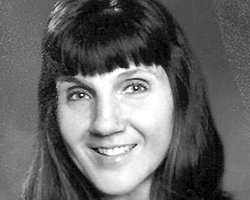I have been reminiscing a lot about my kids’ sports of the past and how parents’ actions made a difference or not.
It’s because my first just went off to college that I have finally had time to remember what’s really important, and that is the peace I got from being a sport parent.
I hope at least someone who reads this can relate to us parents whose kids have played sports.
It was as early as last year that my kids finished playing any kind of sport.
I recall when my son played baseball at Los Alamitos Youth Baseball on the grounds of the Los Alamitos Joint Forces Training Base. It was awesome to see him grow from a shy 4-year-old into a boy of 13 who easily made friends, even if he was still shy by nature.
I saw my daughter grow at Los Alamitos Girls Softball League as well, becoming one of the strongest pitchers who loved her sport and showed it by doing her job no matter what.
She loved conversing with the girls aside from sports, but when she played, her focus naturally separated from the social butterfly to that of a player—one who didn’t see her opposition as friends, but as opponents on the field.
Both of my kids also played in the Los Alamitos American Youth Soccer Organization. I grew from a parent who told them what to do in sports to a parent who let them play and learn something about themselves to boot.
I have to admit that the four sports my kids played at certain parts of the year became insane. Taking my daughter to practice then picking up my son somewhere in midstream kept me very busy. Forget about the fancy dinners. Sometimes it was Chinese on the go and sometimes it was plain leftovers if it was really late. Cereal in a bowl is what many parents told me they would eat, and I would laugh, for I came from a family that always sat at the made-from- scratch dinner table every night.
There were also rare times I would almost forget to pick my daughter up. How could I forget her? One rainy day, I recall, a coach told me it was okay that I didn’t pick her up on time. I looked at him and thanked God for his understanding. My daughter was safely in his truck with his daughter in tow. They all kept dry and that was what was important to me.
Forget about the protocol of a chaperone that the sport rules called for—I was glad he took care of my daughter. Thank you Joe, for compassion for us parents is what it’s all about. It helps in knowing that if the shoe were on the other foot, I would take care of his kid too.
I was a team mom for most of the teams my kids played on because I loved it. I loved the part about keeping those boys’ or girls’ parents informed of everything the coach needed.
In turn, the coaches were lifted from that stress. Each of them would thank me through the whole season, concentrating on the fact that it was crucial to have a good team parent like that—one you can rely on. Tell me, who wants a stressed out coach teaching their children how to play? Over the years there have been many coaches for my kids, but those that treated them fairly were the ones the kids remembered the most.
No yelling was ever forgotten by the kids, but the coach that drilled the skills over and over and had snack afterwards—well—he was the one the kids would appreciate and talk about to kids who would have him the next year.
I use the word “he” here, but of course there were many “she” coaches who were great as well.
The most memorable part of kids’ sports for me was in the stands, where you really got the feel of the crowd.
There were parents who could never stop telling their kids how to play. We were all at one time those type of parents, ones that couldn’t stop telling the kids what to do.
The significance of all this came to me just recently, when a current L.A.G.S.L. parent told me he wasn’t “that” parent any longer.
He told me he sits by the outfield in a pop-up chair. He doesn’t converse with his daughter on the field or tell her what way is better for her to play. He has learned over the years that telling his daughter what to do isn’t what is important anymore.
The lesson learned for him is he has an older daughter who plays as well, so it has kept him focused on what’s truly important. He says he sits down at the game quietly, even if it gets bad for her team. He told his daughter it’s essential in how she treats others when she plays the game.
Having fun is good too, but learning how to fall when the game doesn’t go your way is the main point in peace to all involved in the game. A spoilsport no one wants, naturally.
This father I spoke to said that there was a tournament out of town that they had gone to which turned out really ugly.
Name calling of one parent on one team to another team’s parent turned into a brawl.
Police were called and you can envision what it did to the kids (embarrassment and anger, to say the least). It is the parents who are responsible for their own actions and rather than a negative reaction to the game, a focus on peace is what should be strived for, so that the kids can learn that peace and getting along is what matters most.
In the end, my memories of kids’ sports was good overall. I think that one of the reasons I enjoyed it most was seeing my kids enjoy the sport and getting to know their team members as well.
The parents who focused on the good things about the game are what I miss most.
Those parents and their kids made me realize that being supportive in your kid’s sport is what it’s all about.
Next time you go see a kid’s game anywhere, remember to cheer when it’s good and when it’s bad just try to cheer them on anyway with the encouragement they deserve.
As parents, it’s what the kids really want from us.
Enea Ostrich is a resident of College Park East.










